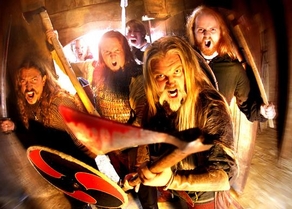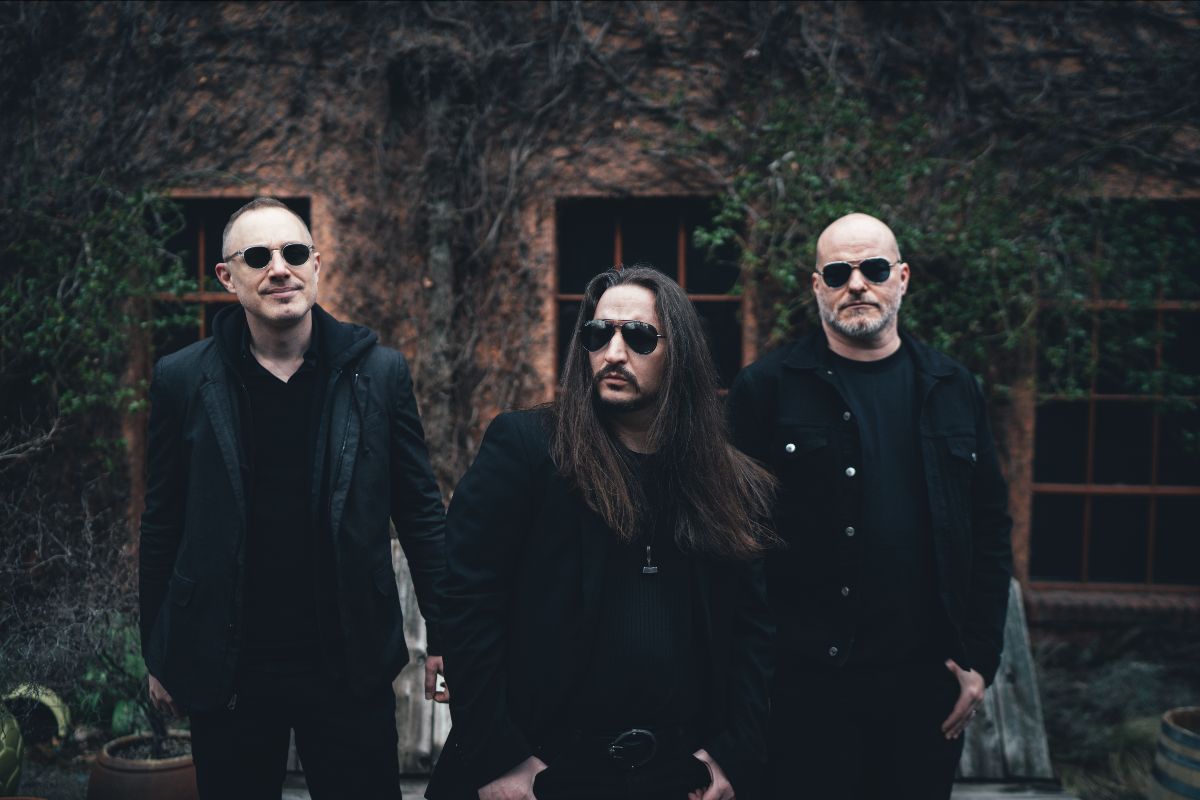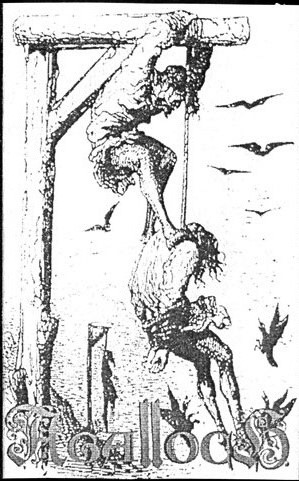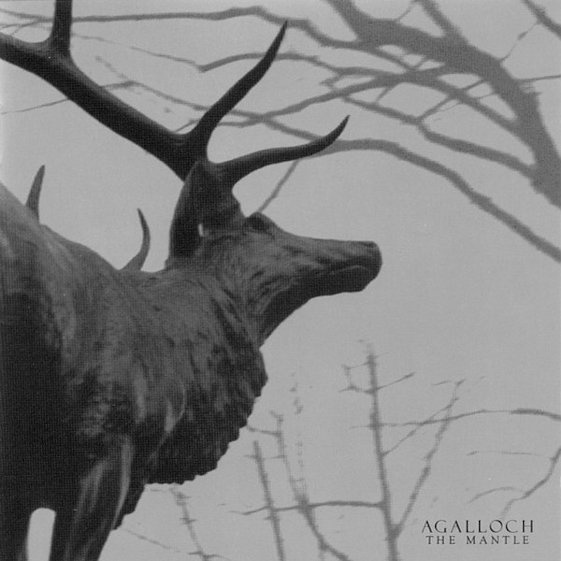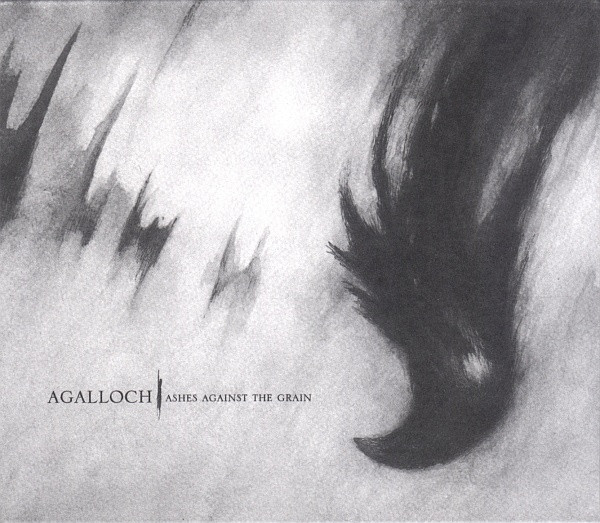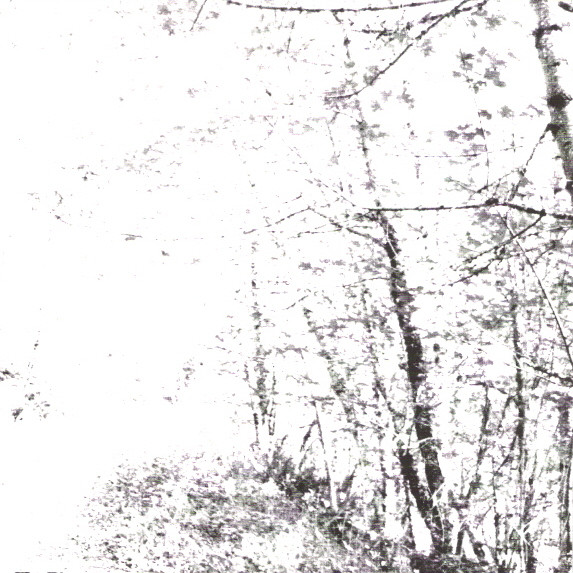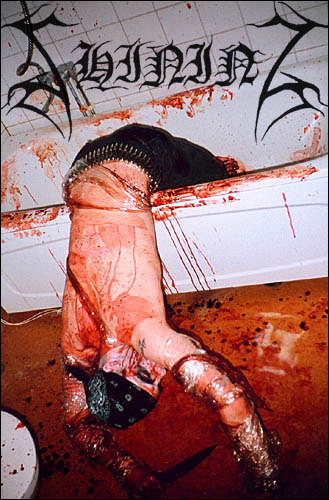
The world must prepare for Sabaton's nuclear attack on mundane power metal!
Primo Victoria [2005]
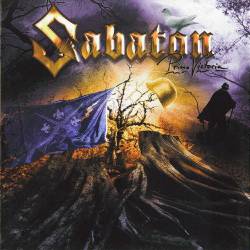
Sabaton's official debut album Primo Victoria, released on Black Lodge, redefined the benchmark for modern power metal bands. The archetypal high pitched falsetto vocals are substituted for a macho low-pitched voice, almost tip-toeing into growling territory. Guitars produce electrifying, razor sharp riffs in a power metal fashion, more like Children of Bodom than Gamma Ray but still nothing like the Finnish quintet. The drums sound bombastic, truly in-your-face and refusing to stick to the monotonous double-bass drumming most power metal acts feel comfortable with. The keyboards are fiery and intense, literally making the music sweat. All of these attributes connect together seamlessly to underscore Sabaton's central theme: war, a theme not frequently discussed within a power metal context. All of the lyrics are related to war and vocalist Joakim Broden is so passionate in his approach that the topics become infectious and the listener wants to know what exactly he speaks about. The only song excluded from the war talk is closing number 'Metal Machine' which a light-hearted heavy metal track formulated with the song titles of well-known metal bands.
Attero Dominatus [2006]
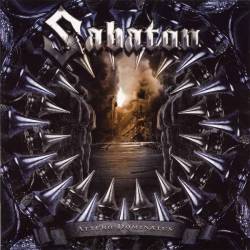
It would be futile to argue that Sabaton's second album is wildy discernable from their debut (the closing track, entitled 'Metal Crue' is another jokey metal song with lyrics created by the names of popular metal bands) but Attero Dominatus does provide evidence of Sabaton's evolution over the last year. Songs are more streamlined and sound more like anthems, with offerings like the title track, 'Nuclear Attack', 'Back in Control' and 'In the Name of God' packing a hefty punch to the listener. These songs are Sabaton at their sharpest and most dynamic, comfortable in what they do with formidable execution. Sabaton's lengthiest song to date is on this album, the melancholy 'Rise of Evil', describing with accuracy the rise of the Third Reich. This is arguably the best song Sabaton have committed to tape for its abundant maturity, foreboding riffs and envious intensity. Although an improvement on Primo Victoria, a third album like this would do Sabaton no more favours; they have exhausted this style.
Metalizer [2007]
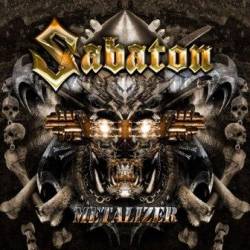
Sabaton's third album in three years, Metalizer is not strictly speaking exclusively new Sabaton material. Before the days of their debut album, the Swedes recorded two demos [1], conjoined in a best-of release entitled Fist for Fight in 2000. It was released on an obscure Italian record label, Underground Symphony. However, it is the second disc on Metalizer. The first disc is ostensibly re-recorded versions of songs from Fist for Fight in addition to a couple extra songs. This sounds more like traditional heavy/power metal with no amazing flair and few similarities to their first two albums. The guitars are not as poised as on the other work Sabaton have recorded but do retain some formidable riffs, and the vocals sound rawer and deeper than ever. Lyrical themes pay homage to fantasy, Tolkien and other power metal clichés. Many of these songs can be considered filler tracks. It would appear Sabaton released Metalizer so fans could have the opportunity to obtain Sabaton's true origins, which is an honest move. They no longer play any of these songs in their live set [2].
The Art of War [2008]
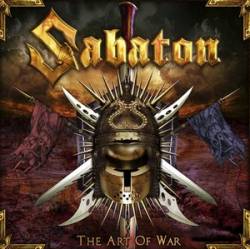
Sabaton retain their consistency in releasing albums each year and The Art of War, their latest album to date, hits shelves in 2009. The band have been enriched over the years and showcase it in the near-fifty minutes of this album. The acquisition of a proper keyboard player [3] means the keyboard takes a more interactive stance on the album, sounds very prevalent and plays different roles on different songs. Only 'Unbreakable' and 'Talvisota' demonstrate obvious trademarks from the Primo/Attero days. The music sounds even more intense and the guitar riffs are more substantial and experimental. Although the lyrical themes are still war-driven (this time there is no party metal track), 'Cliffs of Gallipoli' has an almost joyous mood while 'The Price of a Mile' sounds cinematically upsetting. 'Union (Slopes of St. Benedict)' is a superlatively creative songs that even utilises elements of folk metal in an innovative fashion. 'Firestorm' is frenetic, certain to increase heart rates with a genuine sense of urgency. The album is divided by brief samples of a woman reading selections from Sun Tzu's 'The Art of War' book that are supposed to correspond to the following song. Fortunately, unlike so many death metal bands, the sample use is not abused so the album does not become hideously fragmented. Musical explosions occur everywhere on this release with ground-pounders like 'Ghost Division' and '4o:1', marking this a relentless album for power metal and Sabaton's most articulated release yet.
Teamed with performances at Graspop, Wacken and other major metal festivals, Sabaton reached large audiences and with a captivating, energetic live show stuffed with tracks that invite the metal congregations to sing along. It is unsurprising that Sabaton have been signed to one of metal's biggest record labels, Nuclear Blast. They can only get even more popular now and are definitely ear-marked as being the next big thing in power metal. What can be anticipated from their forthcoming release is unknown, save the return of war lyrical themes; the band invited their fans to e-mail ideas of wars they would like to see covered in the next album and received over 10,000 replies. Until next year...
------------------------
[1] These were originally recorded approximately 1999/2000.
[2] They certainly played a few in 2007 on the tour for the album though.
[3] Frontman Joakim Broden used to handle keyboard duties and the band would hire a player on tour.


